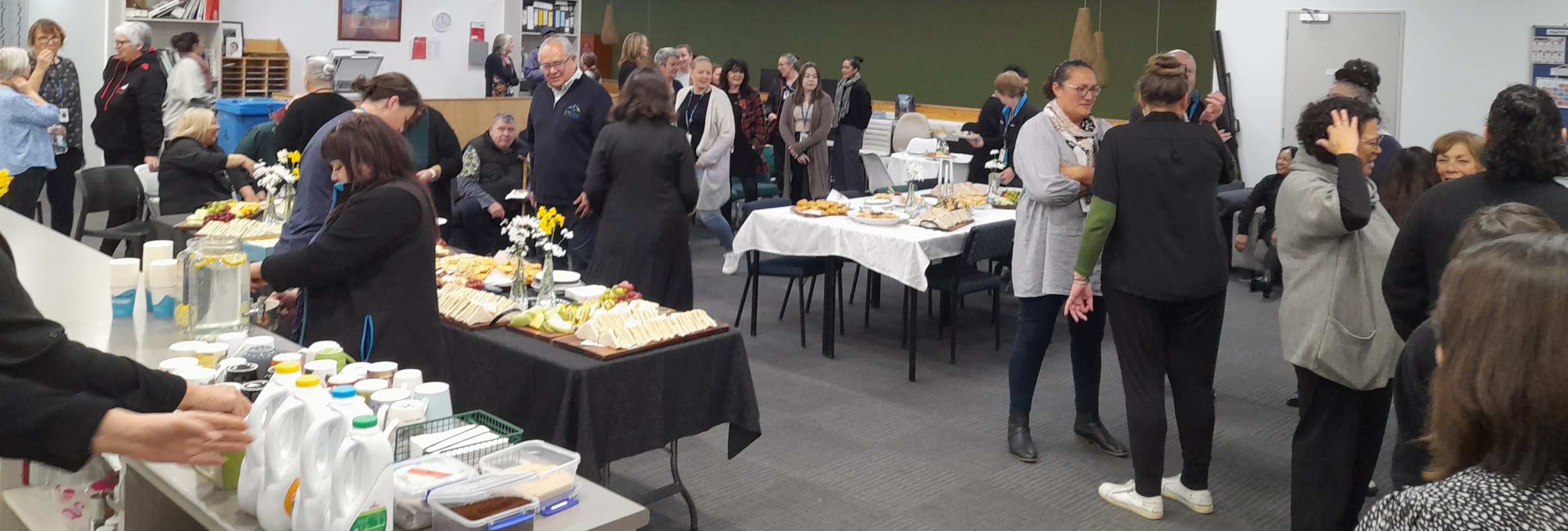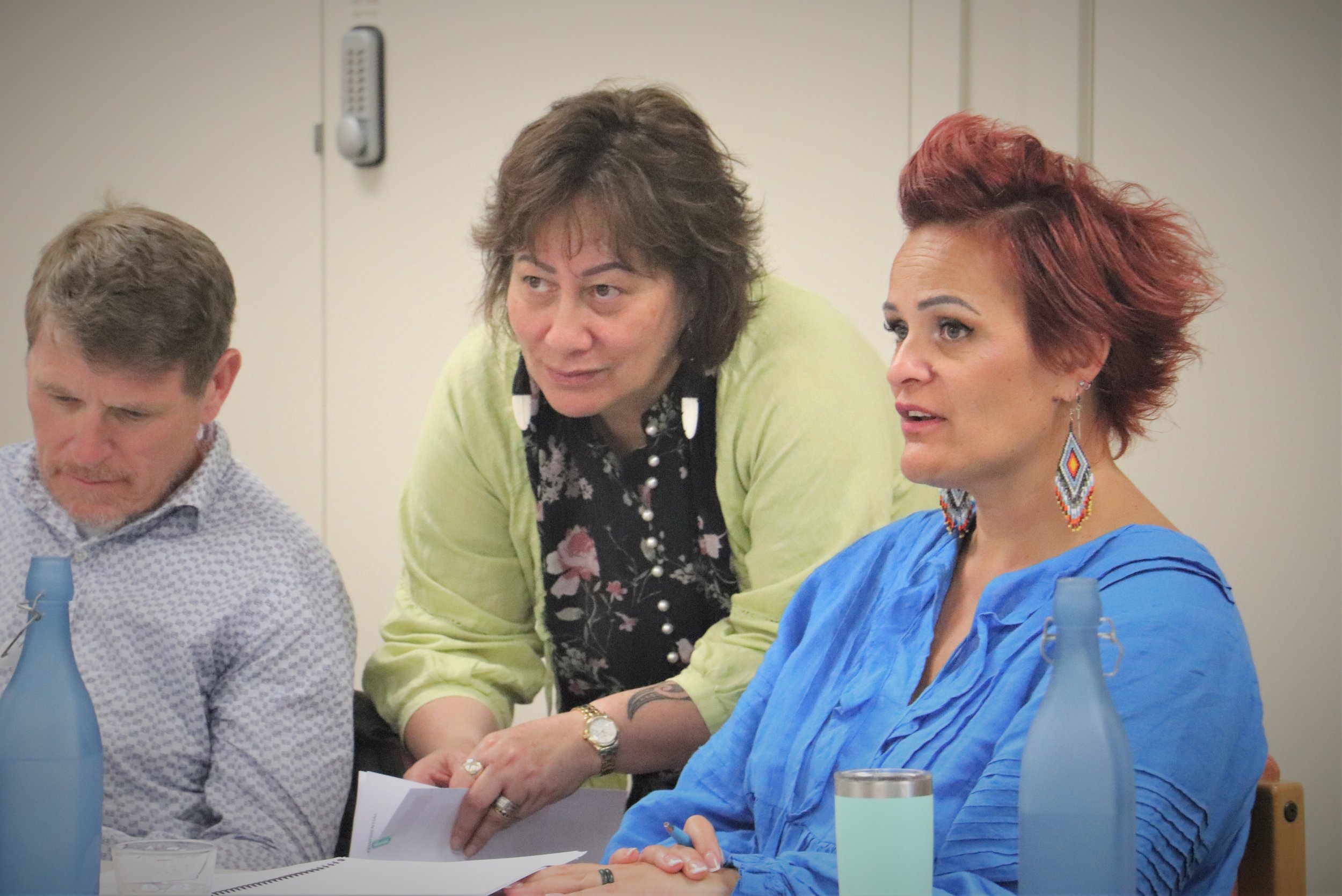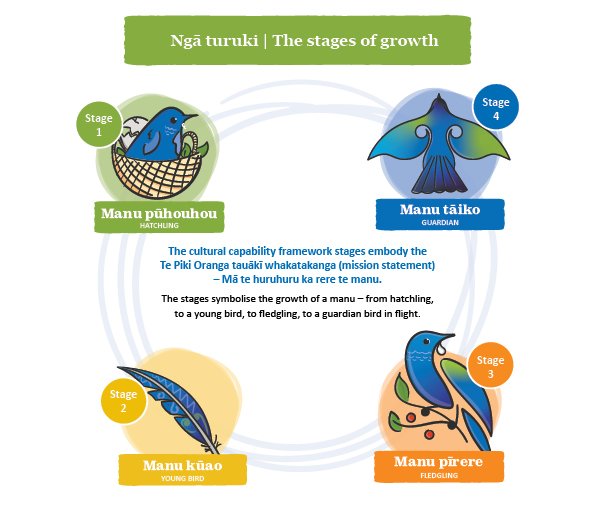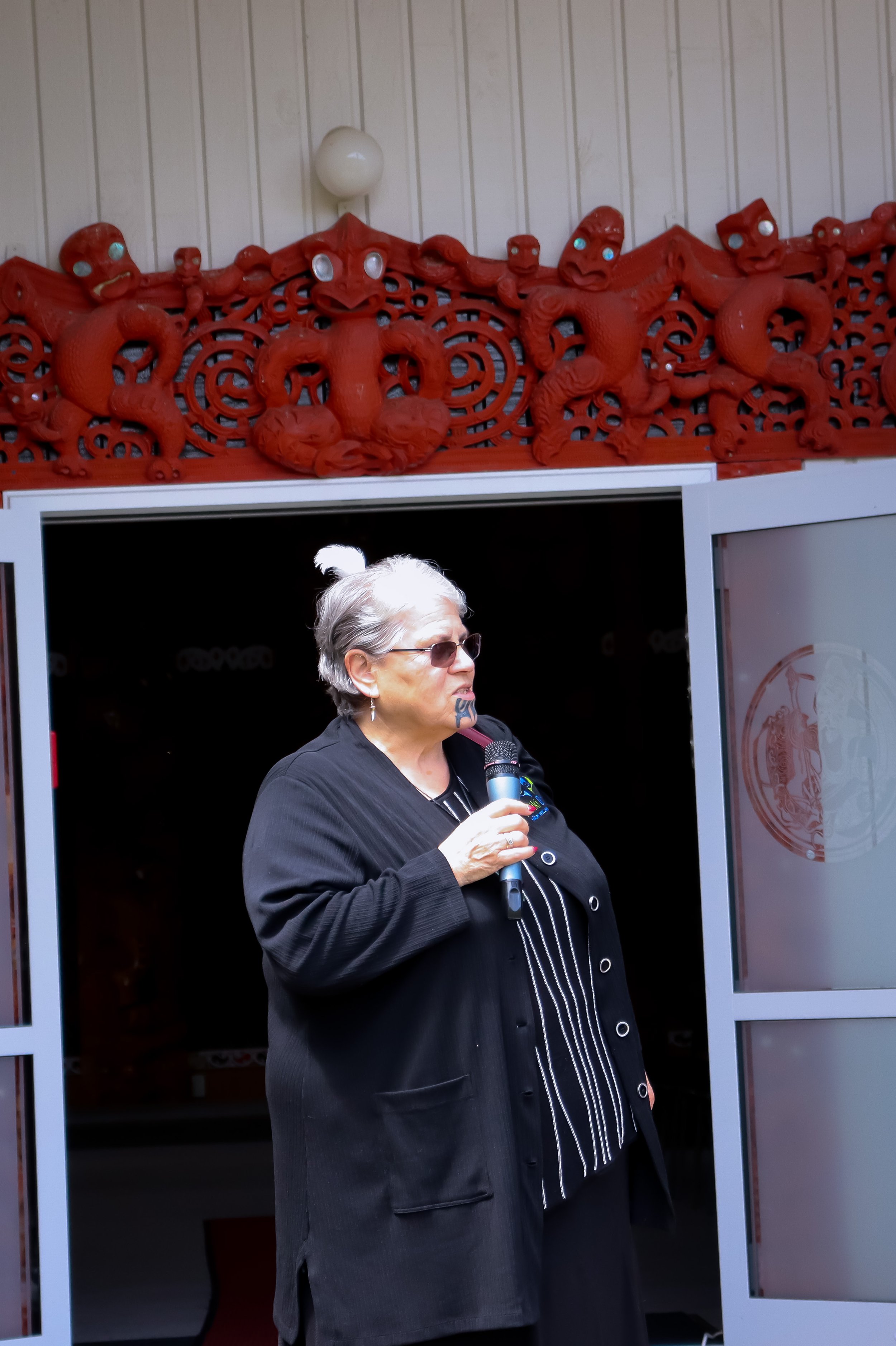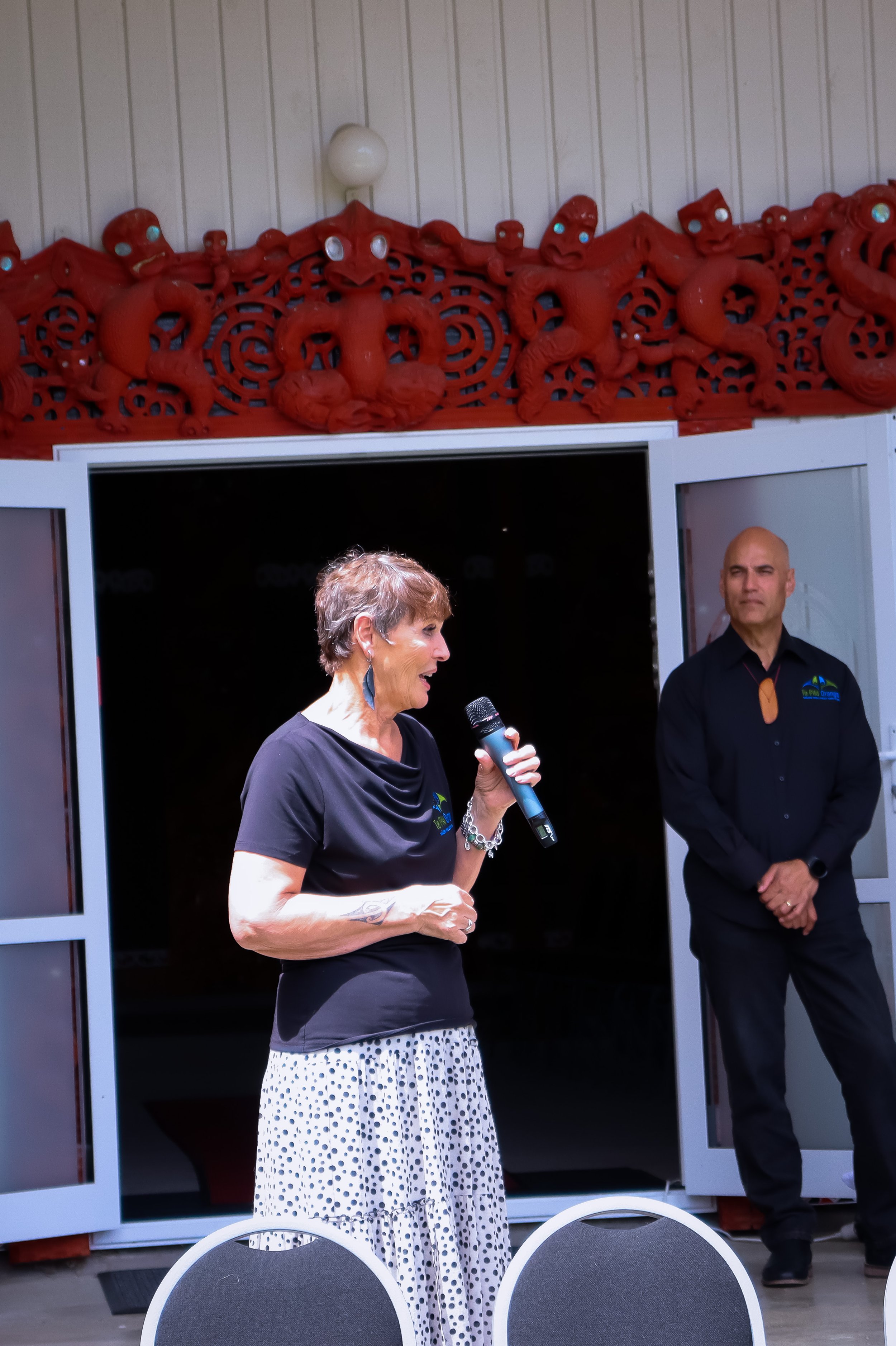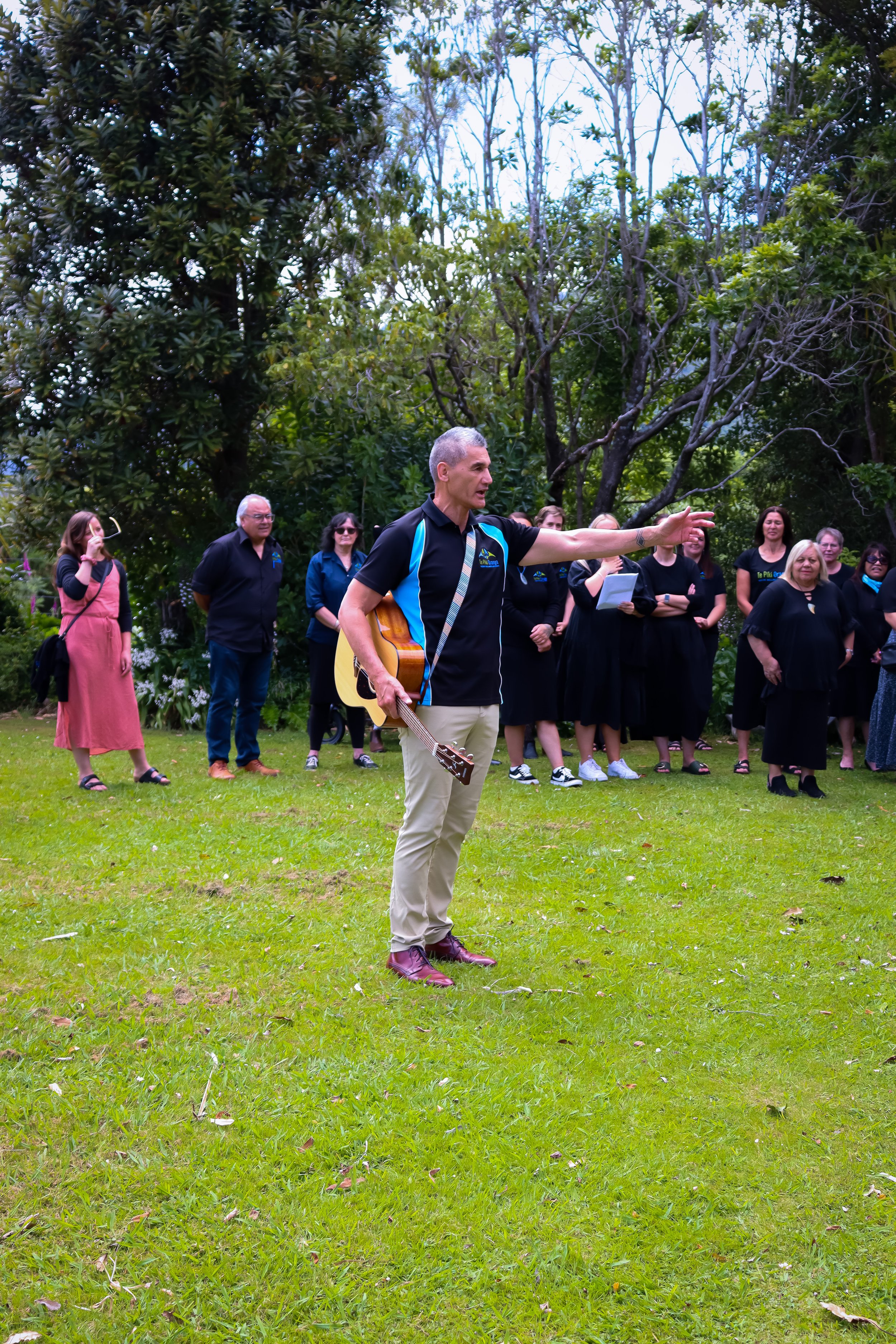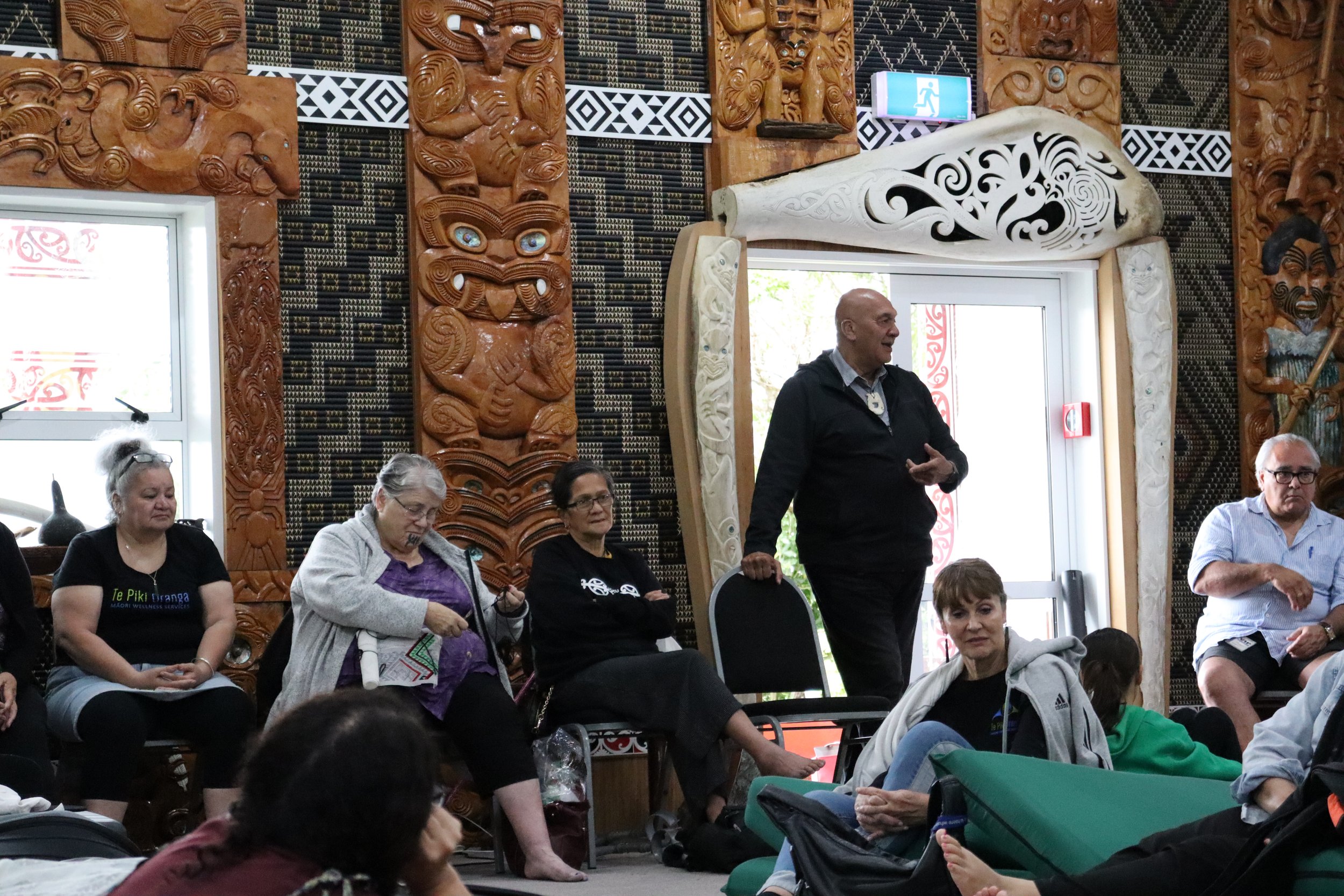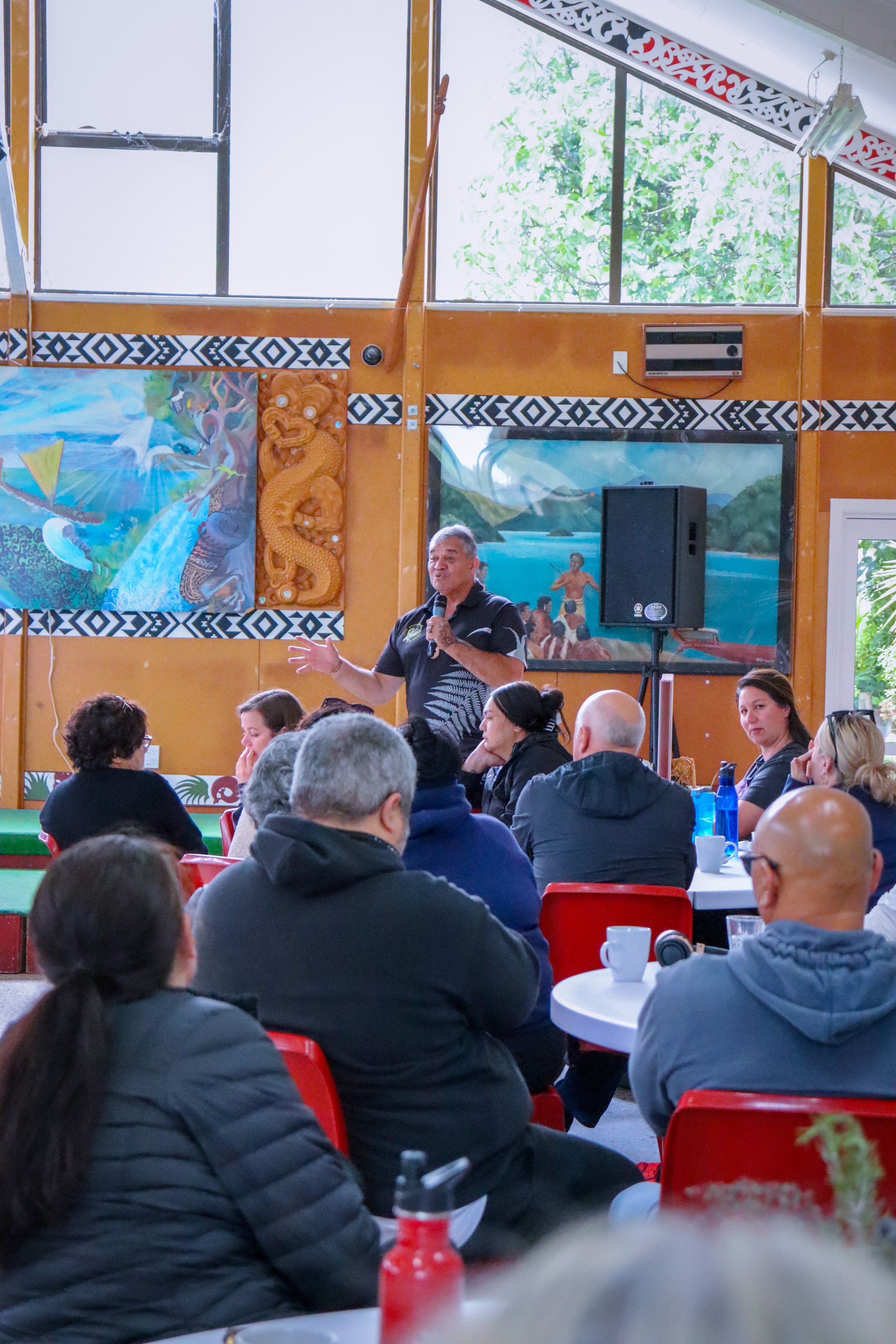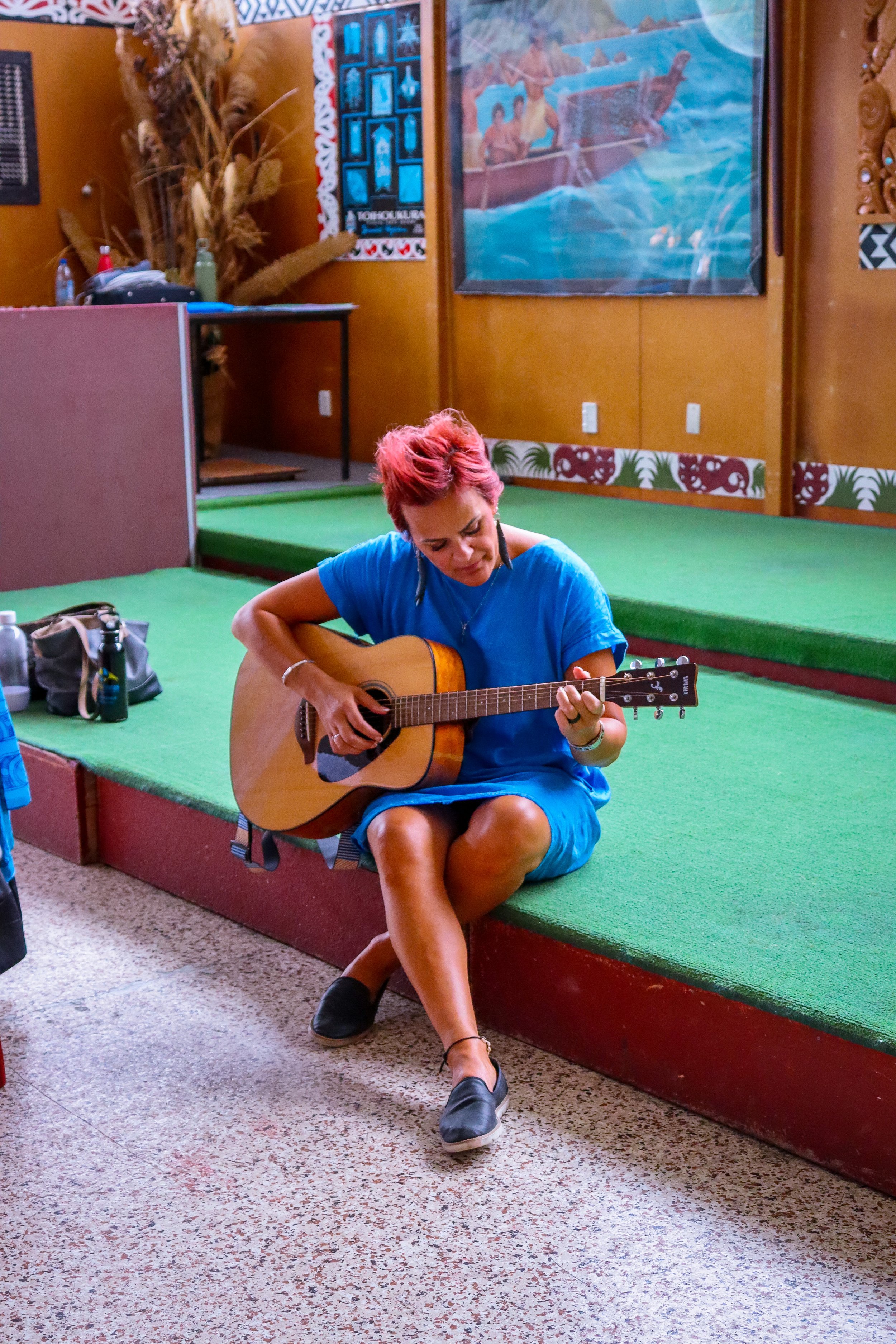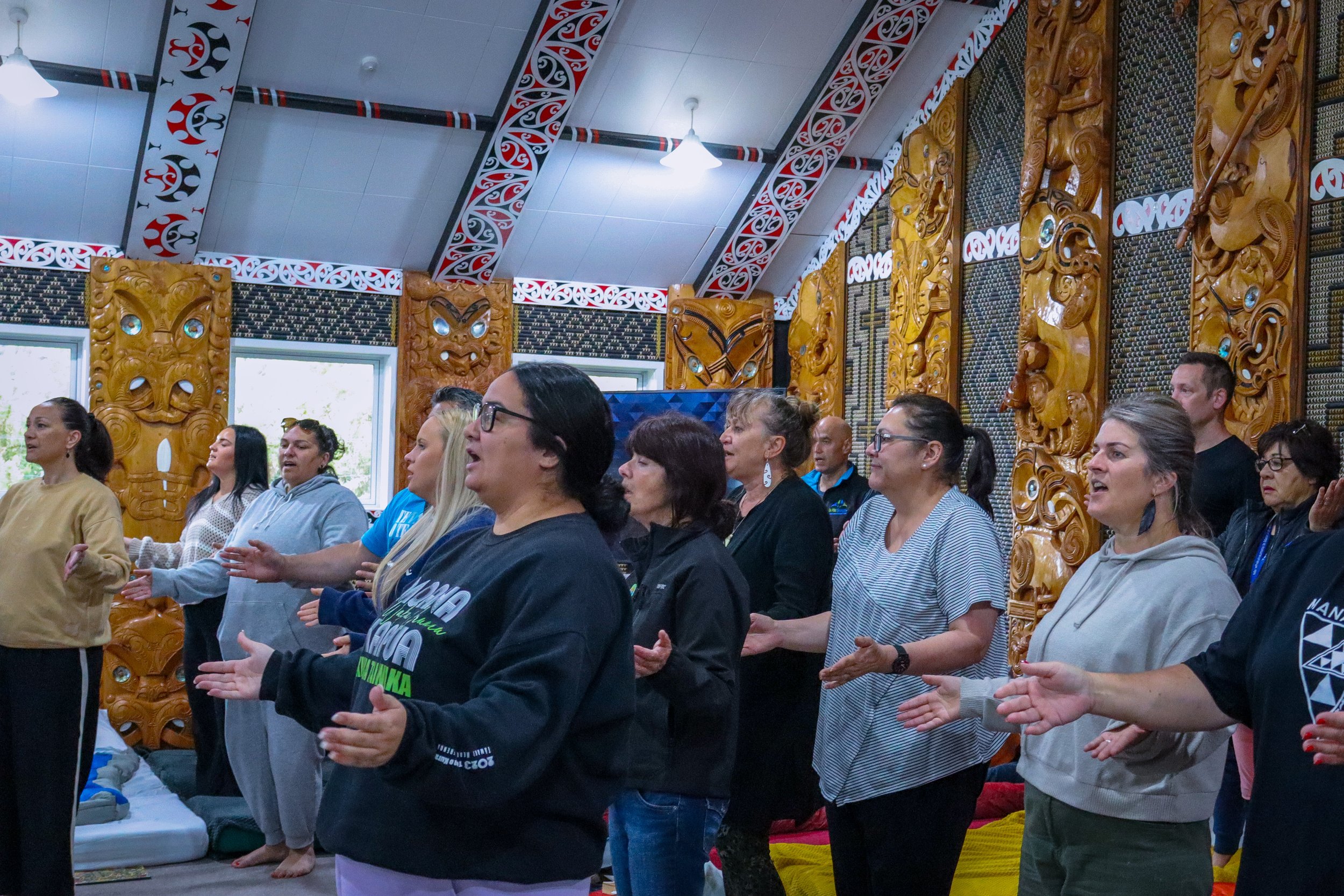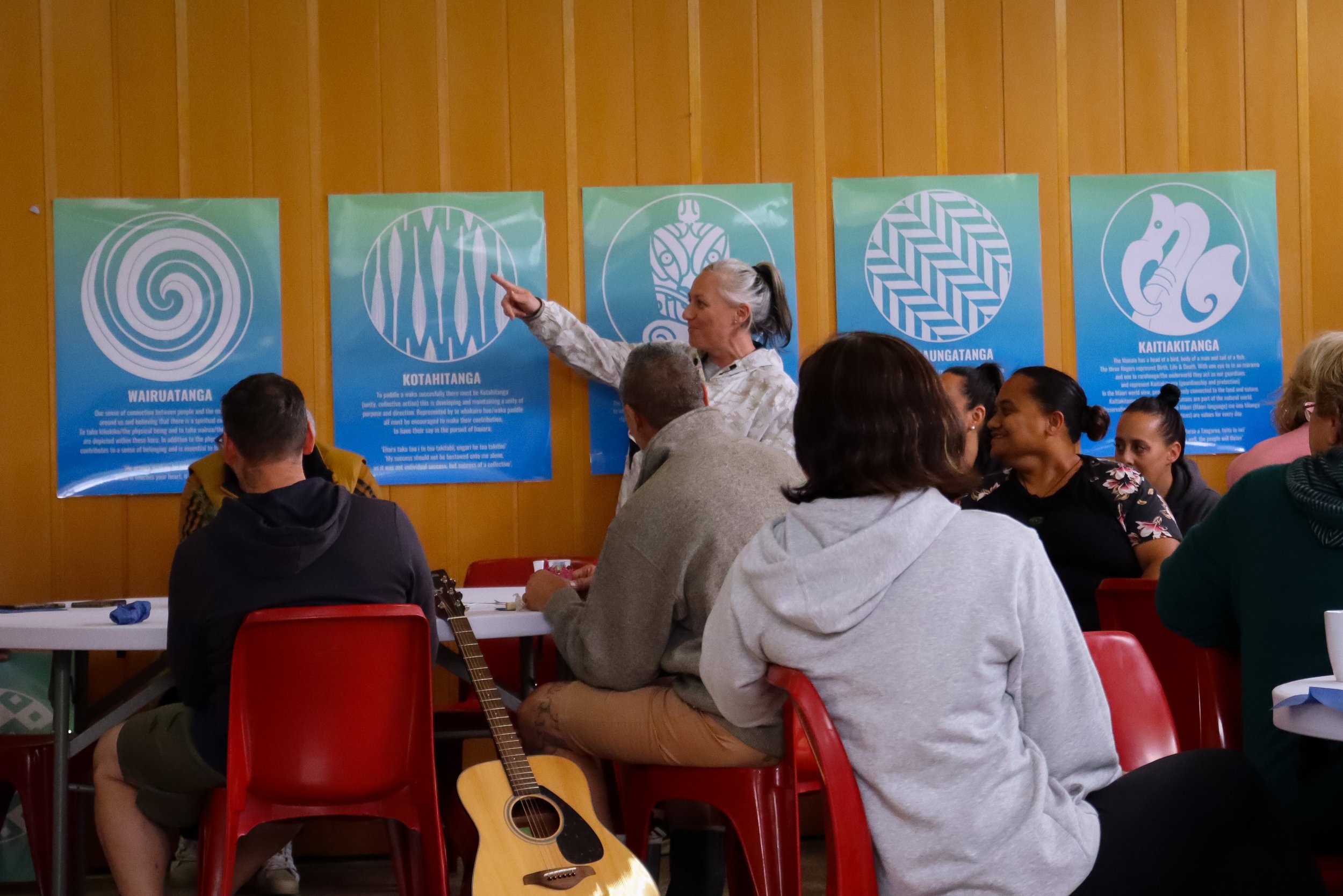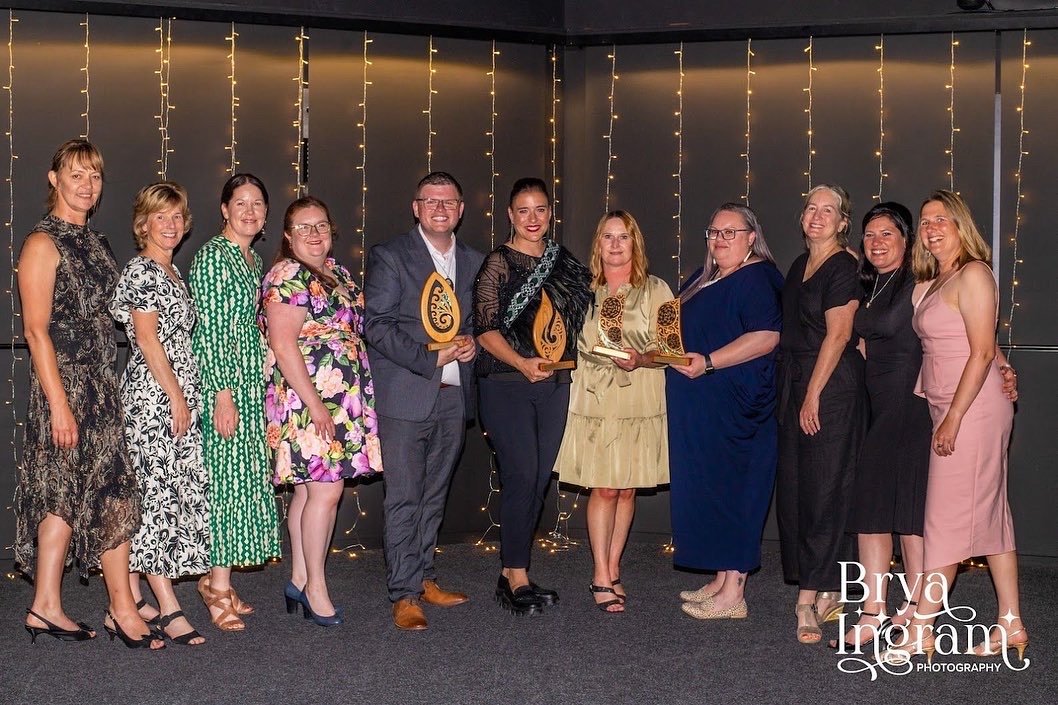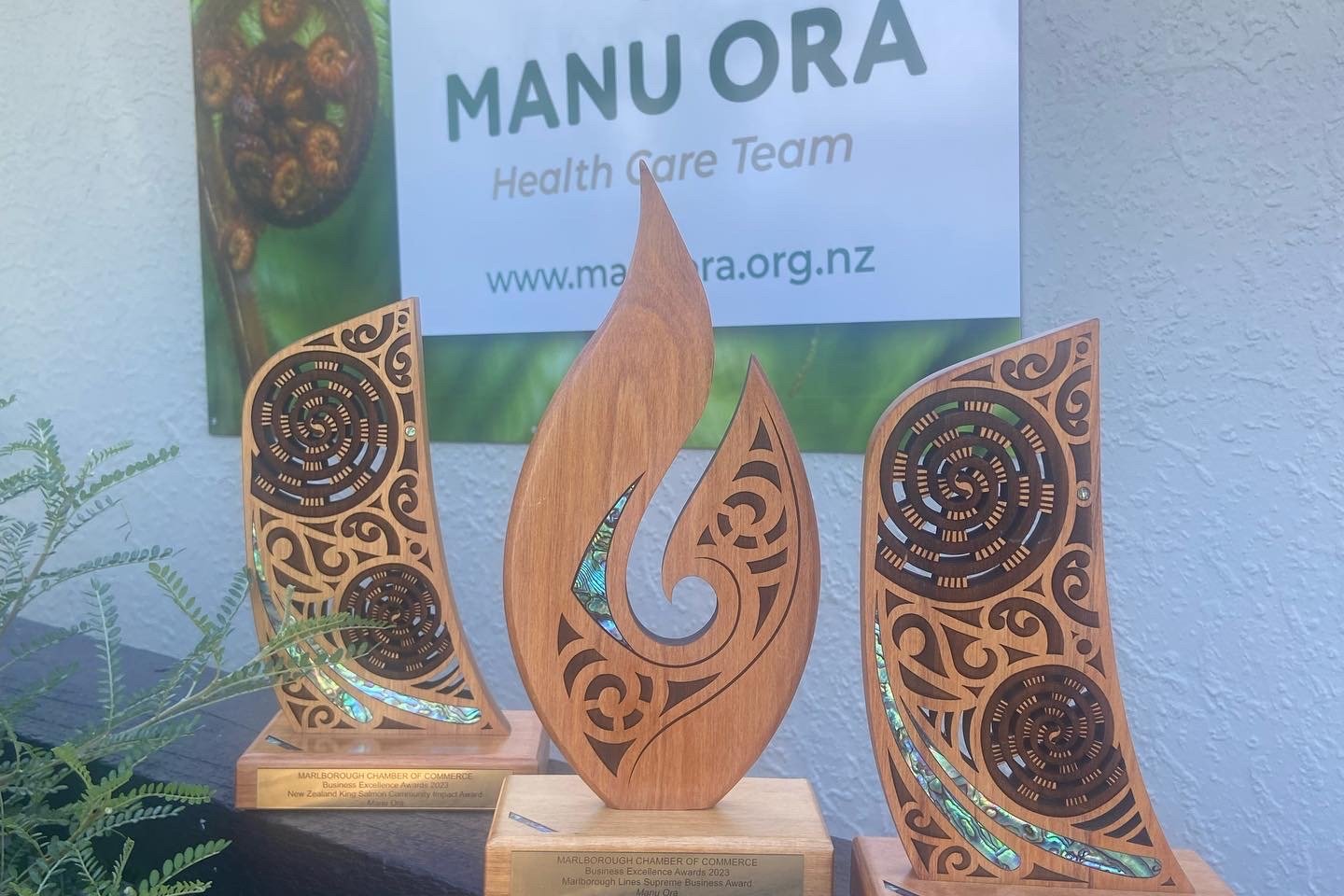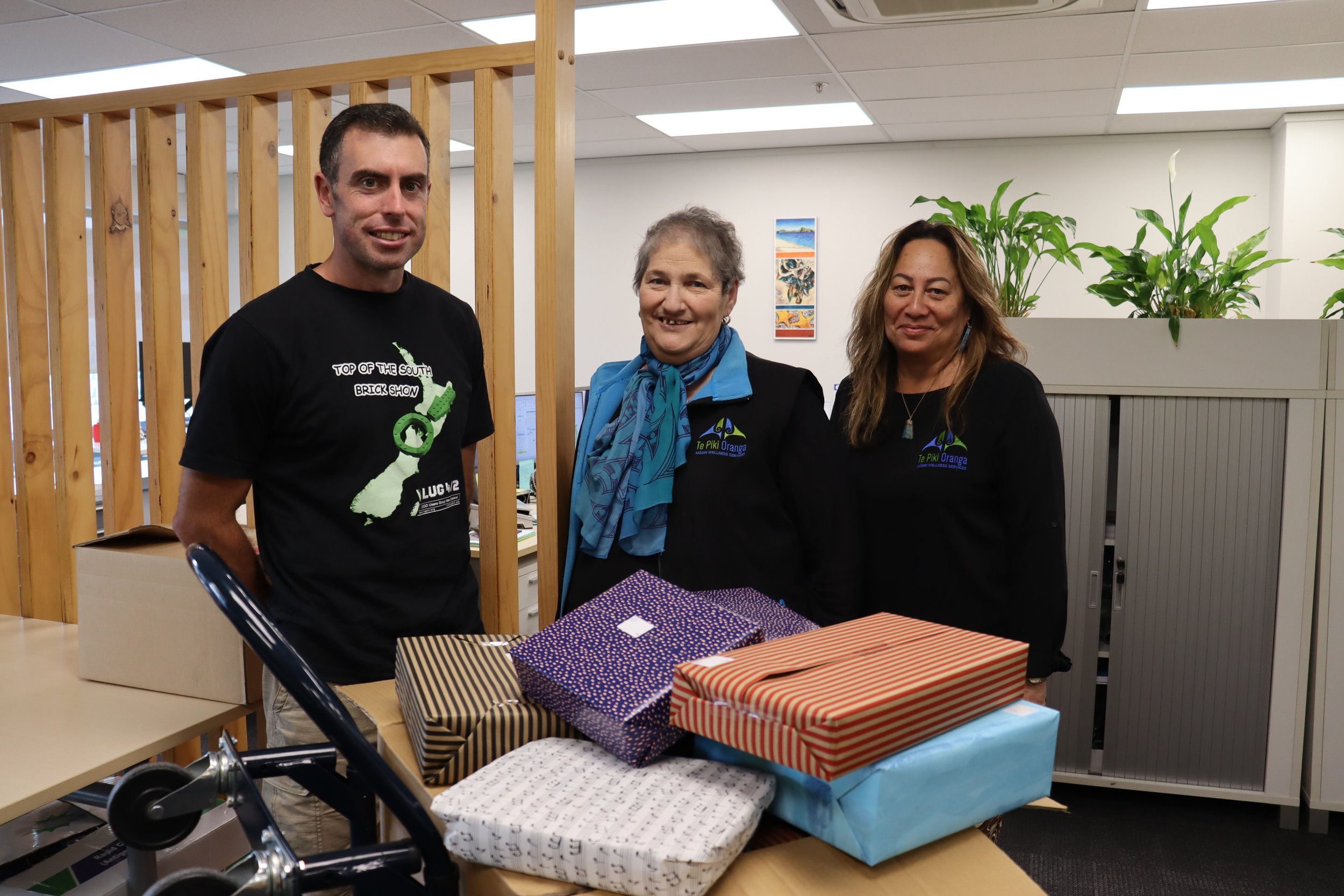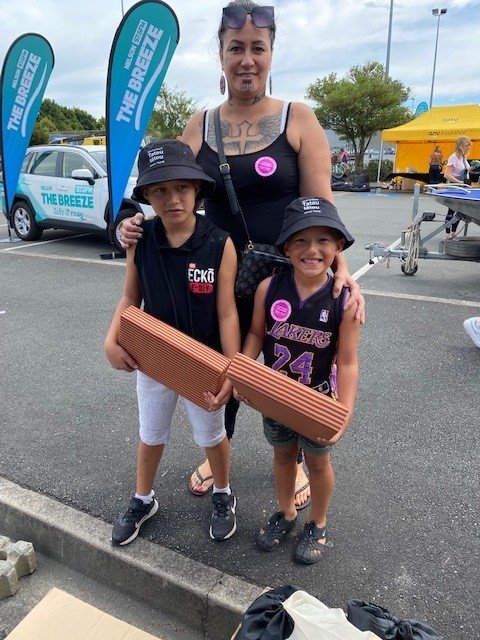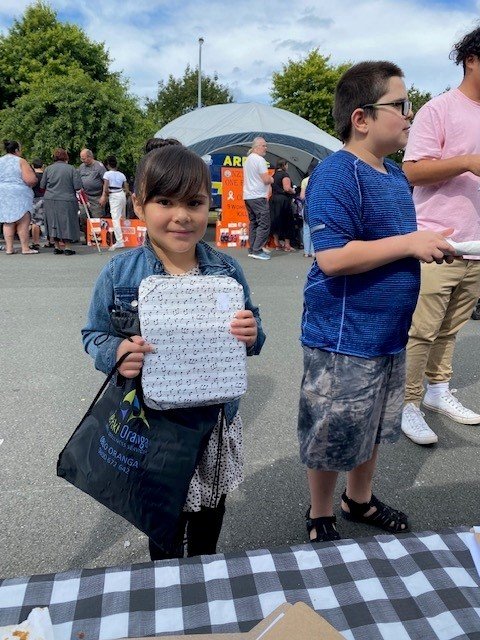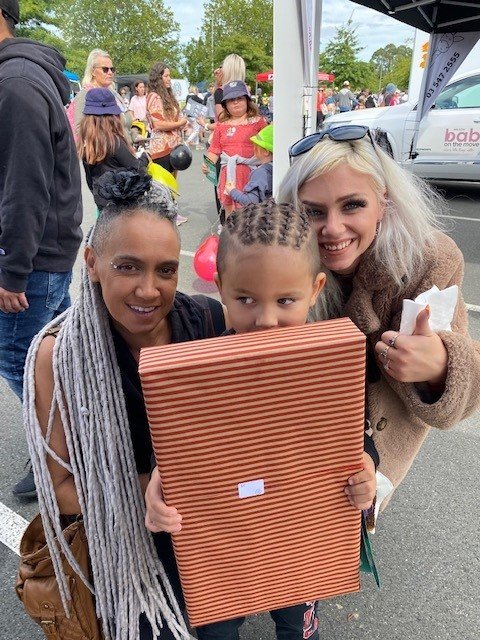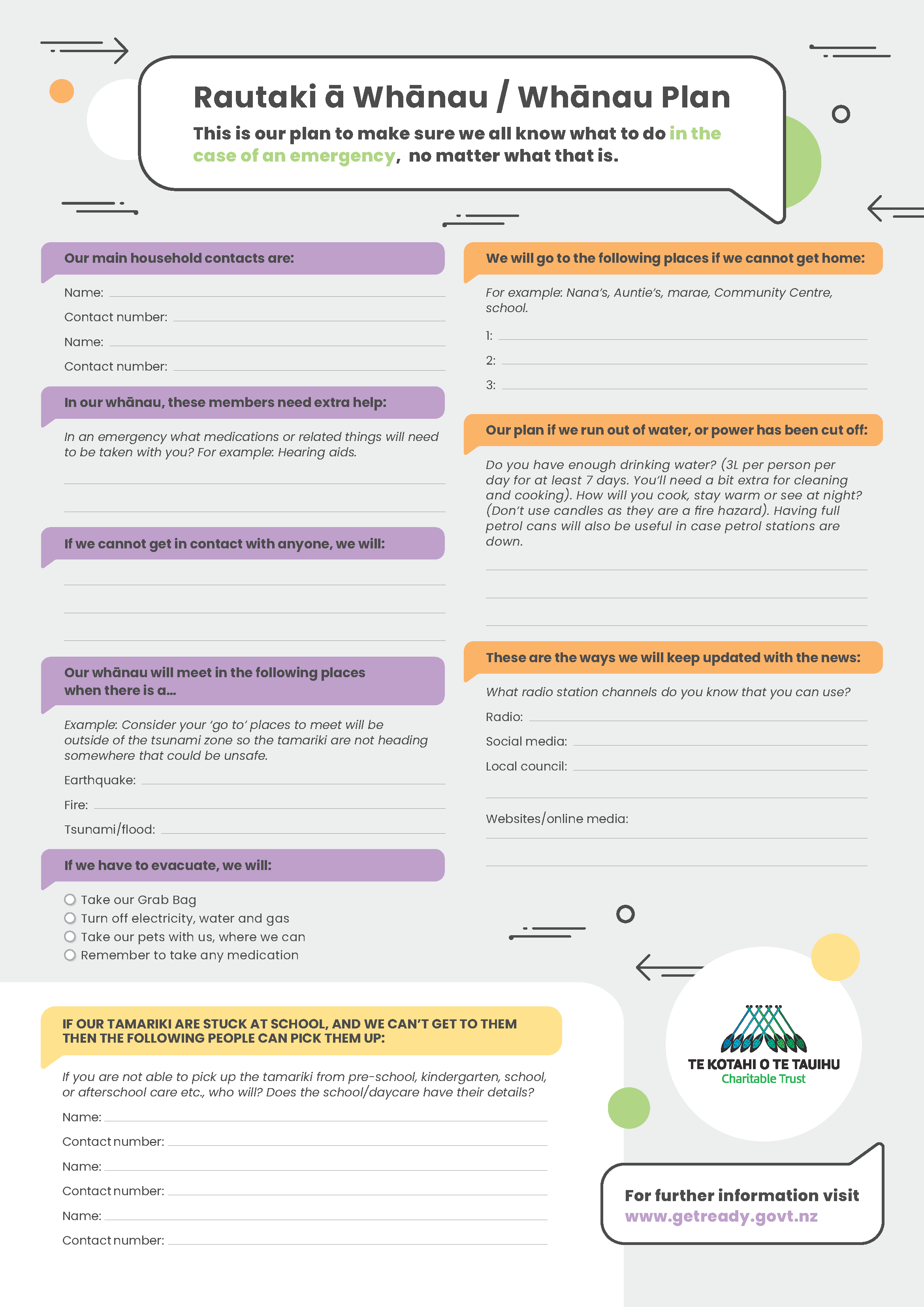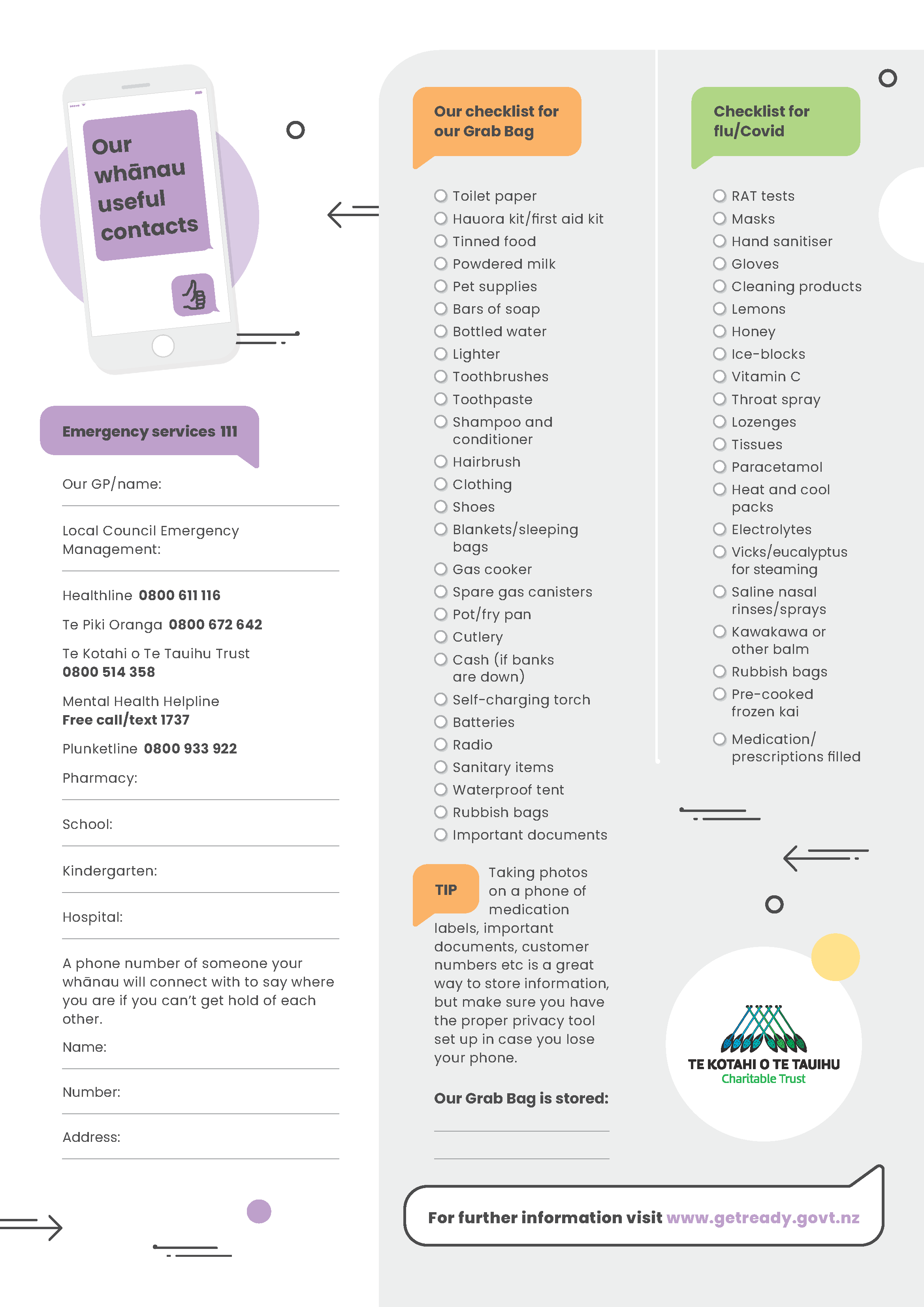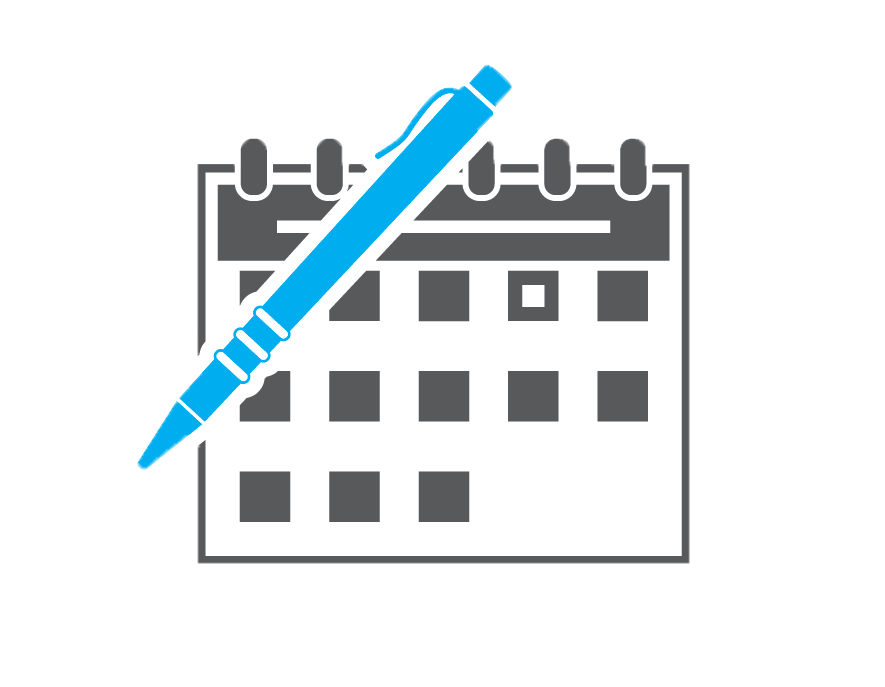By Melissa Nally – Pūkenga Manaaki, Te Hā Aukati Kaipaipa
The Wairau celebration for our anniversary was a heartwarming occasion bringing together kaimahi (old and new) and people in the community we have worked alongside over the years.
Kaimahi who have been here since the beginning
(Flo Joyce, Karena Martin, Mares Martin) spoke to their experiences. Te Piki Oranga started as ‘bare bones’ at Nelson Street before moving to the second floor of the Wairau community health hub where we have continued to grow – both in numbers of kaimahi and in the services provided.
Ricky Carr, Pūkenga Kaiwhakahaere Wairau, spoke about the evolution of Te Piki Oranga as a provider of Māori health services to a provider of Māori wellness services – bringing deeper immersion in Te Ao Māori practice and service provision.
The support Te Piki Oranga provides has expanded with the addition of services that address the social determinant of health such as housing (Healthy Homes Initiative), restorative justice (Te Pae Oranga), and mental health support (Te Ata Pūao, Te Kākano Hou).
The past 10 years have seen a progression of partnerships with Waikawa Marae, Picton Medical Centre, Cancer Society and Manu Ora GP practice. These partnerships were built through whanaungatanga, and benefit our whānau.
The floor was opened up to friends to kōrero (Margy Crosby and Felicity Spencer spoke). The influential impact on the wellbeing on our whānau through services and collaborative effort in development was a constant theme, and highlighted the high esteem in which Te Piki Oranga Wairau holds its community relationships.
Top: Ricky Carr speaks while a presentation of photos from the past 10 years plays in the background.
Bottom: Plenty of kai and kōrero was enjoyed by kaimahi and manuhiri.


